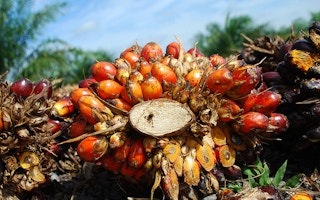Major oil palm growers in Indonesia have increasingly found that what’s bad for the environment is bad for business.
The financial risk of losing buyers committed to sustainable supply chains has helped motivate four of Indonesia’s 10 biggest planters to mend their ways in the past year, according to a report released on December 19 by Chain Reaction Research (CRR), titled “2016 Sustainability Benchmark: Indonesian Palm Oil Growers.”
Two of the growers — Eagle High Plantations and Austindo Nusantara Jaya — suspended their operations in contested areas due to interventions from buyers who have committed to purge their palm oil supply chains of deforestation, peatland conversion and human rights abuses.
Two others — Astra Agro Lestari and Dharma Satya Nusantara Group — issued stronger sustainability policies.
CRR analysed and ranked the sustainability policies and practices of the 10 largest planters listed on the Indonesian Stock Exchange (IDX).
“
That’s really good news. It shows these NDPE [No Deforestation, No Peat, No Exploitation] policies do have an effect of suppliers suspending their operations or making stronger policies themselves.
Albert ten Kate, author, “2016 Sustainability Benchmark: Indonesian Palm Oil Growers”
The fruit of the oil palm trees they grow is processed into palm oil, an ingredient found in around half of all packaged products, from ice cream to instant noodles. CRR looked particularly at the progress they have made since June 2015.
One of the report’s authors, Albert ten Kate, told Mongabay: “It’s sort of glass half-full or half-empty. At least four of these 10 companies had made progress with their policies and their practices, and that’s quite a lot.
That’s really good news. It shows these NDPE [No Deforestation, No Peat, No Exploitation] policies do have an effect of suppliers suspending their operations or making stronger policies themselves.”
On the “half-empty” side, some of the major growers continue to flout sustainable practices. And outside of these major 10, there are still hundreds of smaller-scale plantation firms in the country who aren’t as publicly scrutinised.
Sawit Sumbermas Sarana scored second lowest in CRR’s report. It has recently lost business from major buyers with strong NDPE policies, including Wilmar International and Apical, which represented 16 per cent and 12 per cent of its revenue respectively. But it has found buyers apparently less concerned with sustainability to replace them.
Sawit Sumbermas now sells mostly to Royal Industries Indonesia and Wings Group, ten Kate said. These are companies that produce cooking oil for the domestic market and they aren’t likely to apply as much pressure toward sustainability, he said. The two did not respond to inquiries as of press deadline.
In the first half of 2016, Sawit Sumbermas’ profits dropped about 11 percent from the same period the previous year. But it is looking to increase production in 2017 and export about 30 percent of its crude palm oil to countries such as India, Bangladesh, and some in the Middle East, reported the Jakarta Post.
While growers can still find buyers without NDPE policies, the number of such buyers “is not unlimited,” noted ten Kate.
What surprised ten Kate most was that companies like Nestle and Unilever, who have long committed to NDPE supply chains, were still sourcing from the two lowest scoring companies, Tunas Baru Lampung and Sawit Sumbermas respectively.
Unilever did not respond to inquiries as of press deadline, but ten Kate said his co-author, Eric Wakker, has recently spoken to company representatives about its business with Sawit Sumbermas. “It seems they had a more positive view on SSMS than we had,” ten Kate said, referring to the firm by an acronym.
An example of Sawit Sumbermas’ actions that caused it to score so low with CRR was its plan to clear carbon-rich peat soil on one of the tracts of land it recently bought. It does not have a public NDPE policy. Its website’s sustainability section is “under construction.” The company did not respond to inquiries as of press deadline.
Sawit Sumbermas has lost most of its NDPE buyers; less than 10 percent of its revenue is now from NDPE buyers.
This story was published with permission from Mongabay.com. Read the full story.










